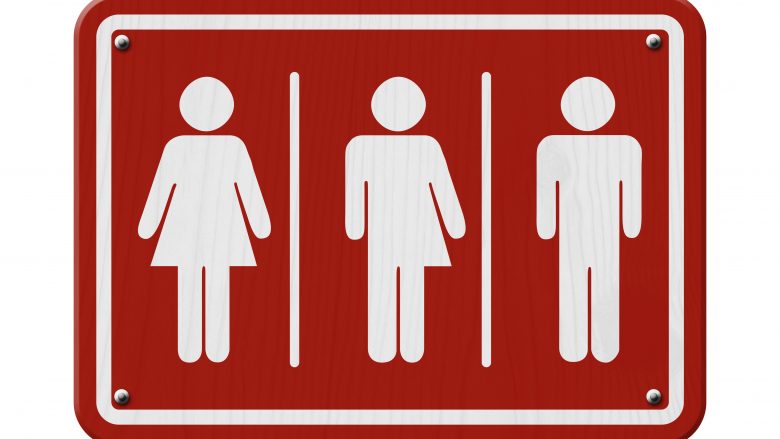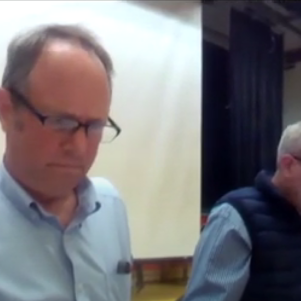Conversion Therapy Ban Fails in Massachusetts Legislature
By Matt McDonald | August 1, 2018, 12:04 EDT

A bill that would have prohibited therapists from trying to change the sexual orientation or gender identity of a minor has failed in the Massachusetts Legislature, even though both the House and Senate expressed support for it.
An amendment added to the bill in the state House of Representatives five weeks ago proved the bill’s undoing, as the Senate failed to pass a reconciled version in time to meet all the technical formalities needed before the two chambers wrapped up their formal sessions in the wee hours of Wednesday, August 1.
As a result, so-called “conversion therapy” remains legal in Massachusetts, although it’s unclear if any mental-health therapists in the state are practicing it.
“We are relieved to see that parents and children will continue to have the freedom to seek the counseling they choose,” said Andrew Beckwith, president of the Massachusetts Family Institute, who opposes the bill, in an email message. “… The bill was defeated by all the hard work of our allies in the House and Senate, backed up by the phone calls and emails from MFI’s thousands of Bay State supporters.”
The original version of the bill called for disciplinary measures against therapists who practice conversion therapy with a patient under 18, including revoking their license. It also defined subjecting a child to conversion therapy as child abuse, and required that so-called “mandated reporters” such as teachers and doctors notify the state’s social-services agency if they learn of such a case.
That last provision – which critics argued could lead to parents having their children taken away from them – caused pause in the House. On June 27, the House stripped that section from the bill and passed a watered-down version of it.
The Senate didn’t formally take up the bill until yesterday. Sometime between 6 and 7 p.m. the Senate passed a version of the bill, according to State House News Service. But that version included the original child-abuse section requiring mandated reporters to notify state authorities when they learn of a specific case.
At 11:59 p.m Tuesday – one minute before the formal deadline (which legislators can extend for a short period) – Senate President Karen Spilka took up an amended version of the bill that meshed with the House version by striking out the mandated-reporter section.
A supporter of the bill, state Senator Mark Montigny (D-New Bedford), chairman of the Senate Rules Committee, spoke in favor of the measure from the floor shortly after midnight.
He expressed regret at the need to take out the section requiring mandated reporting of conversion therapy in order to match the House’s version, but said he hoped the Legislature would enact that provision in the future.
“I hope we pass this bill, and the House does the same, as they have in prior session. And I hope we come back with Section 2,” Montigny said, referring to the mandated-reporter portion.
Montigny said the bill is necessary to stop the harm that he said conversion therapy causes. He cited the American Psychological Association in arguing that conversion therapy leads to “depression, anxiety, guilt, hopelessness, shame, substance abuse often resulting, and certainly, suicide.”
“When you tell a person, who is a whole person, they are evil for an important part of their life, and when the people they love the most bring them — remember, this is children under 18 – when the people they love the most bring them to someone who tells them they’re simply wrong, evil, and it ought to change, it is not free speech. It is child abuse,” Montigny said.
The Senate passed the watered-down version at 12:03 a.m. Wednesday.
Yet while the Senate “engrossed” the bill, the vote didn’t allow time for the bill to be “enacted,” a process that requires printing a bill on parchment and then having that version voted on again for “enactment” by the House and Senate. Those final steps didn’t happen before both branches adjourned (which happened at 1:12 a.m. Wednesday in the House, and at or shortly after 1:16 a.m. in the Senate, according to State House News Service).
Supporters of the measure say homosexuality and transgenderism are neutral or positive variations of human sexuality that are fundamental to a person, and that trying to change sexual orientation or gender identity is impossible, unnecessary, and destructive.
Opponents of the measure say homosexuality and transgenderism are unfortunate and harmful conditions that in at least some cases are changeable – particularly if therapy reaches a questioning adolescent before inclinations are ingrained. They also argue that parents ought to be able to decide what sorts of mental-health therapy their children receive.
Fourteen states have enacted laws banning conversion therapy. In New England, the only other state that hasn’t is Maine, where Governor Paul LePage recently vetoed a bill that would have banned it.
It seems likely that a version of the recently failed Massachusetts bill will appear during the next legislative session, which starts in early January 2019.
Members of the Massachusetts House and Senate showed strong support during this legislative session for the concept of banning conversion therapy.
The House passed the watered-down version of House Bill 4664 by a vote of 137-14 on June 27. The Senate yesterday passed both versions on voice votes, and not a single senator expressed opposition to it.
“The bill was overwhelmingly approved by the House and Senate. While it’s frustrating that the clock ran out before they could do the final step, I am confident this will become law in the near future and our youth and families will finally get the protections they need and deserve from this abusive and misleading practice,” said Carl Sciortino, executive director of the AIDS Action Committee, the public health division of Fenway Health, in an email message. He wrote the original version of the bill several years ago when he was a state representative.
Yet it’s unclear what would happen if a conversion therapy ban passes next session, because U.S. Supreme Court Justice Clarence Thomas seemed to invite a challenge to such laws during a recent majority opinion in an unrelated case. Thomas noted that the federal Supreme Court has never made a distinction between speech by professionals and speech by others when it comes to determining First Amendment protection.
“Professionals might have a host of good-faith disagreements, both with each other and with the government, on many topics in their respective fields … and the people lose when the government is the one deciding which ideas should prevail,” Thomas wrote in the 5-4 decision, in a case called National Institute of Family and Life Advocates v. Becerra, which was decided June 26.
Opponents of banning conversion therapy say the U.S. Supreme Court may eventually overturn state laws such as the one proposed in Massachusetts.










